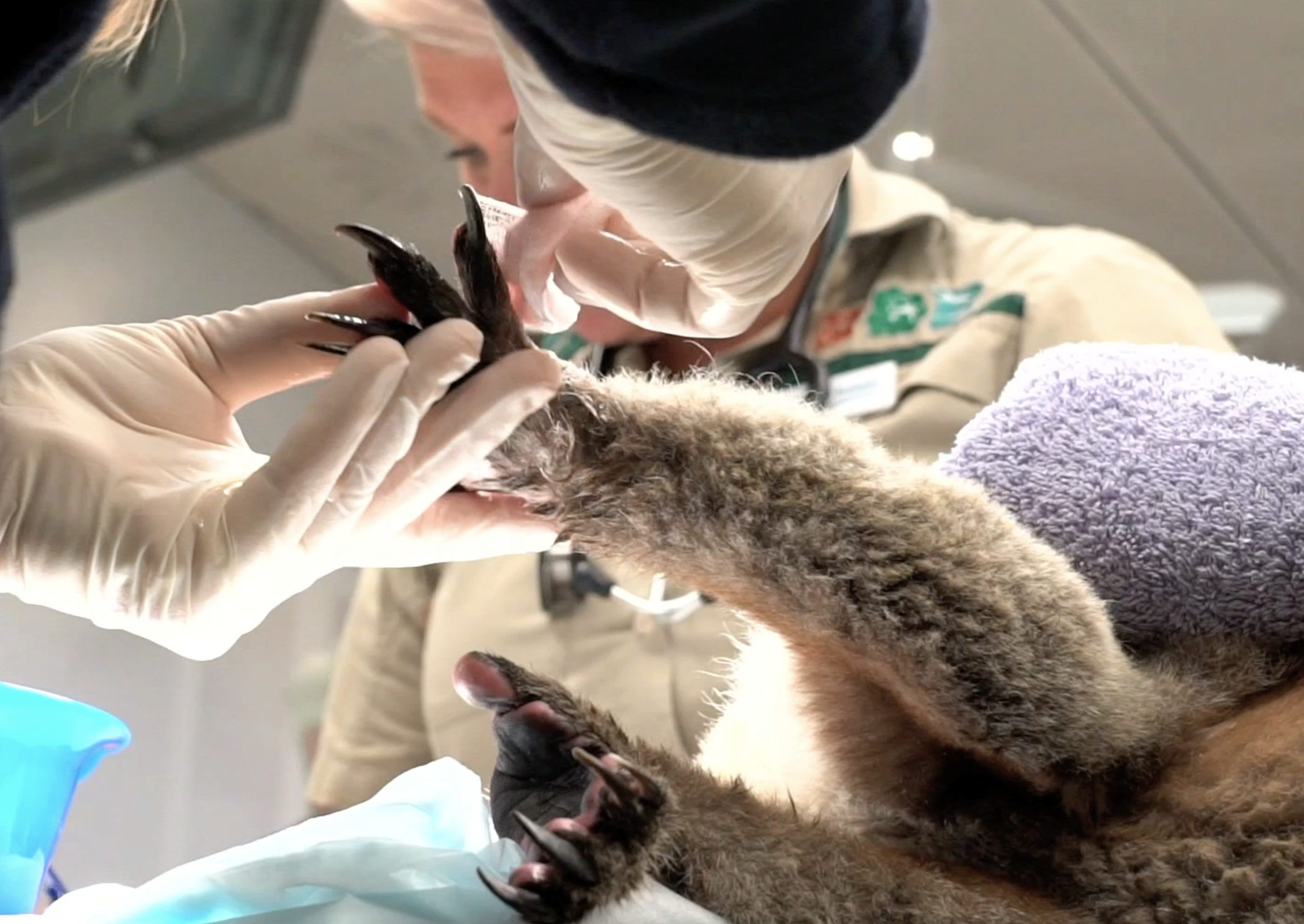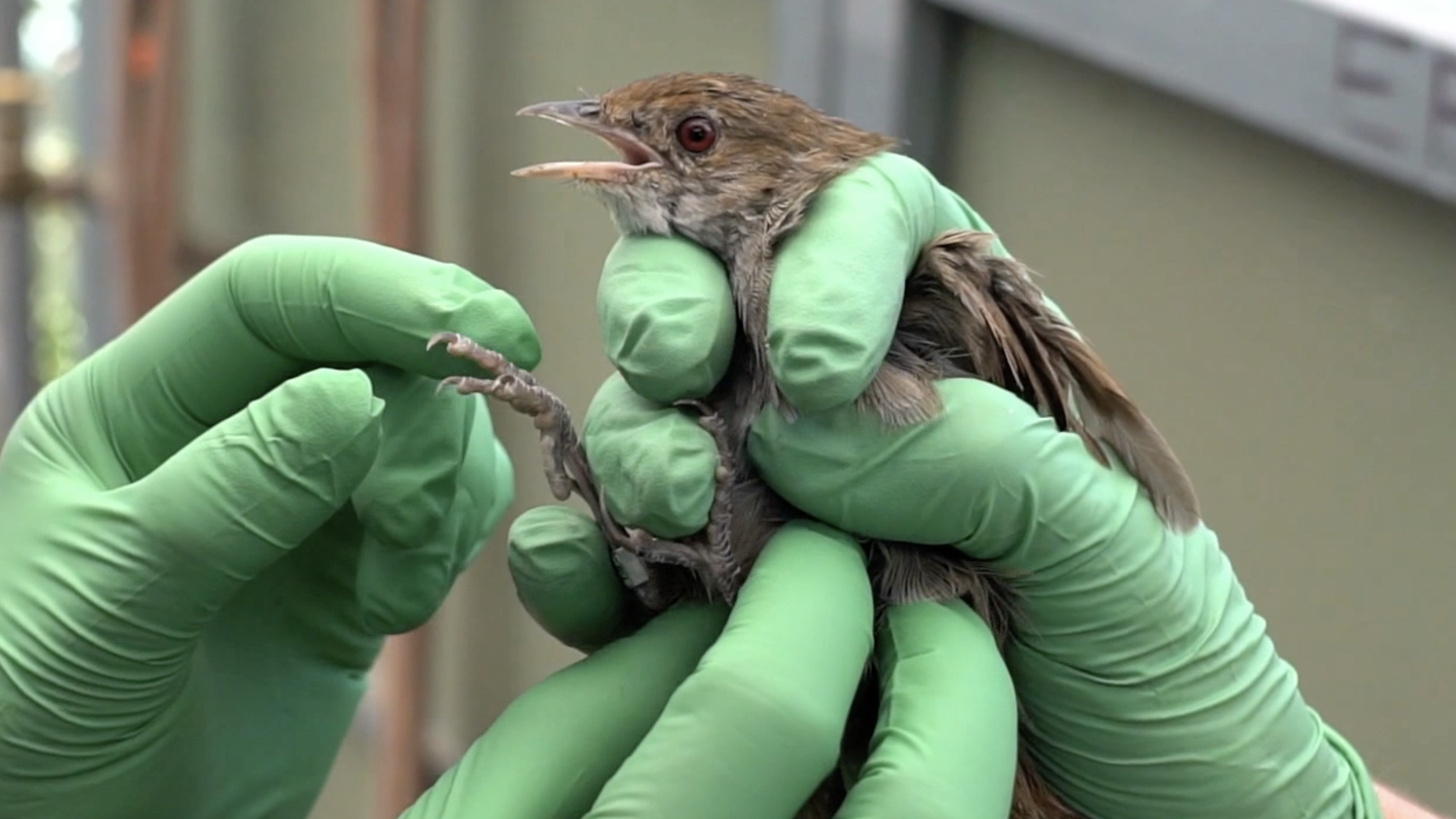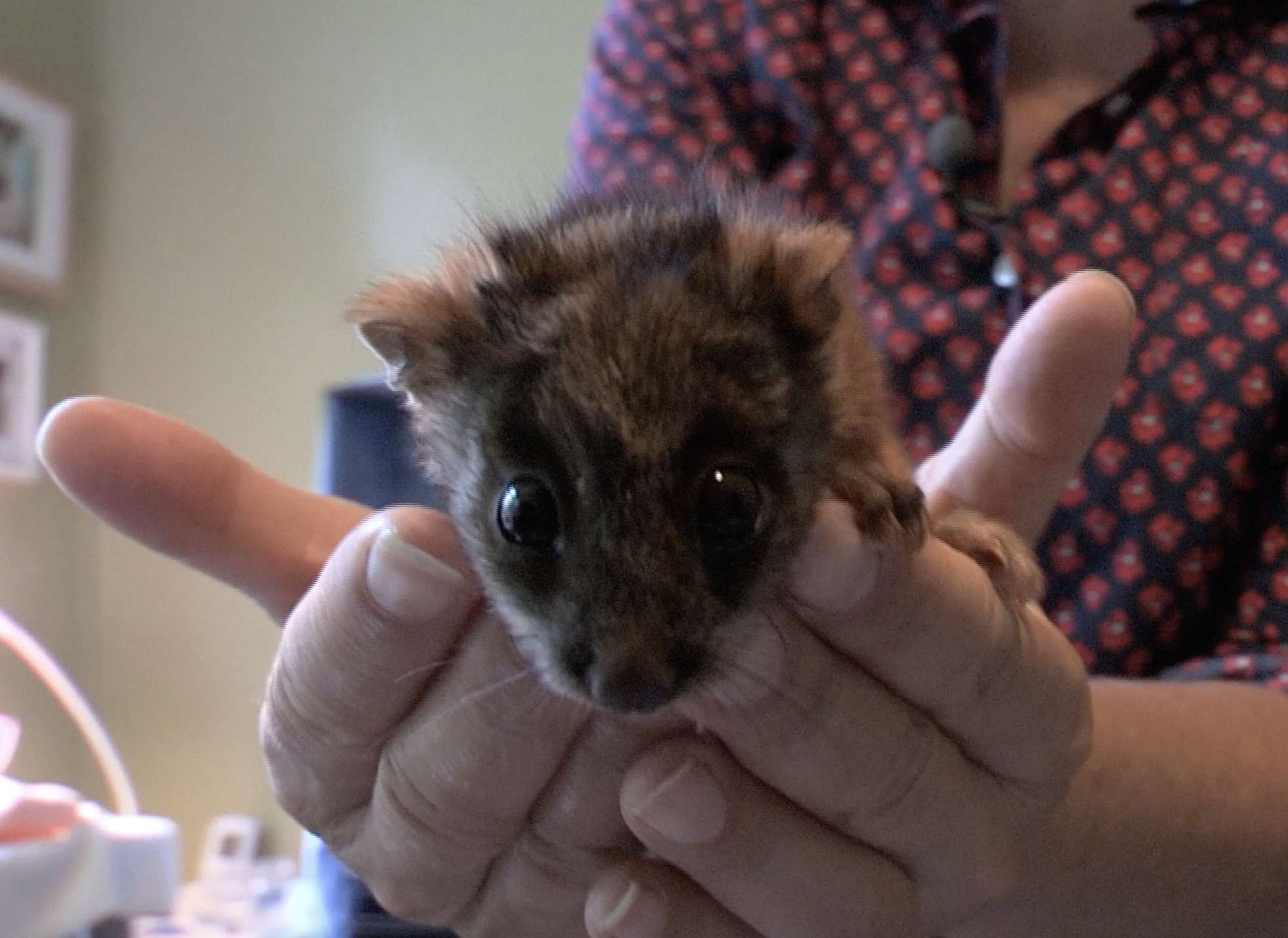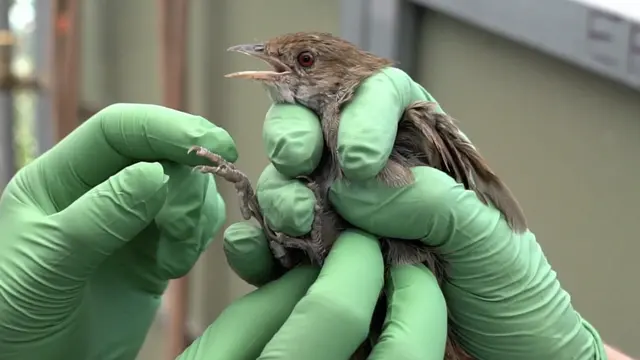
An injured koala is treated for burns. /Zoos Victoria
Most of Australia's bushfires have been contained, but scientists are racing to save scores of wild species that have been impacted.
While it's believed the bushfires have killed at least one billion animals, scientists say trying to determine exactly what the country has lost is a very difficult task.
"We have a lot of uncertainty about where animals and plants are. It is a big country with a lot of land area," said University of Melbourne Professor Brendan Wintle.
"The fire area is more than the size of the area of England. So we don't know where every animal and plant is in that space. We are looking at weeks to months before we get a pretty good handle on just for the lists of endangered species where those major impacts are. For the rest of the species, this is going to take a lot longer."

An eastern bristle bird is being cared for. /Zoos Victoria
Wildlife specialists from the Melbourne Zoo recently took part in a unique rescue effort to save one of the few populations of the rare eastern bristle bird. They removed 15 of the birds from a remote part of Gippsland in Victoria, which was threatened by a devastating fire, and brought them to the safety of the zoo.
"It was never going to get away from the front of the fire. We were able to get a team in, extract it and bring it out," said Zoos Victoria's General Manager for Threatened Species Craig Whiteford.
"We had about five days to plan an operation that would normally take three months to prepare for. This was the first time probably in Victoria's history that we were able to go in and extract something from in front of the fire. We knew the fire was coming. It was threatening and we were supported to go. We know that the bird is still alive in Victoria. Had we not done that... It was a perilous state."

A ringtail possum. /CGTN
Wildlife rehabilitator Lisa Palmer has also seen the impacts from the devastating bushfires. Her days begin with caring for dozens of animals on her suburban Melbourne property, which have lost their habitats and food sources.
"I've never been as busy as this season," she said.
 简体中文
简体中文

